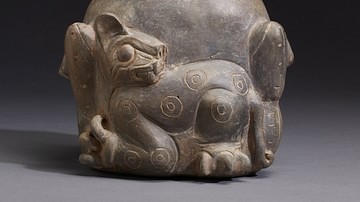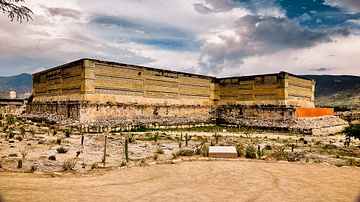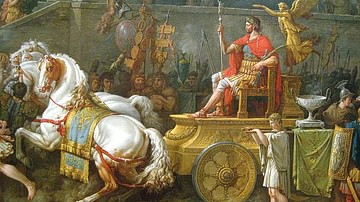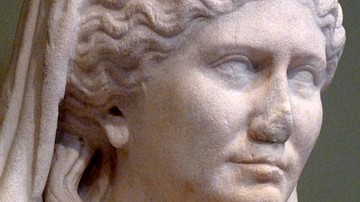Search Definitions
Browse Content (p. 246)

Definition
Juno
Juno was the Roman goddess who protected the nation as a whole but also kept special watch over all aspects of women's lives. She is often thought of as the Roman version of the Greek goddess of love and marriage, Hera. Juno was the wife...

Definition
Chavin Civilization
The Chavin civilization flourished between 900 and 200 BCE in the northern and central Andes and was one of the earliest pre-Inca cultures. The Chavin religious centre Chavin de Huantar became an important Andean pilgrimage site, and Chavin...

Definition
Tartessos
The Tartessian culture existed from the 9th to the 6th centuries BCE in the south-westernmost part of Spain. The landscape between the modern cities Huelva and Cádiz is defined nowadays by the lower course of the Guadalquivir, but in antiquity...

Definition
Aztec Warfare
The Aztecs engaged in warfare (yaoyotl) to acquire territory, resources, quash rebellions, and to collect sacrificial victims to honour their gods. Warfare was a fundamental part of Aztec culture with all males expected to actively participate...

Definition
Mitla
Mitla, located in the eastern portion of the Valley of Oaxaca in southern Mexico, was an important site of the Zapotec civilization. Gaining prominence from the early Post-Classic period (c. 700-900 CE), Mitla became the most important Zapotec...

Definition
Battle of Pydna
The Battle of Pydna in June 168 BCE was a decisive Roman victory that ended the Third Macedonian War and established Rome as the dominant power in the Mediterranean. The Roman Republic was expanding, enlarging its sphere of influence along...

Definition
Teotihuacan
Teotihuacan, located in the Basin of Central Mexico, was the largest, most influential, and most revered city in the history of the New World. It flourished in Mesoamerica's Golden Age, the Classic Period of the first millennium CE. Dominated...

Definition
Yaxchilan
Yaxchilan, located on the banks of the Usumacinta River in the Yucatán peninsula of Mexico, was an important Late Classic Maya centre. The Maya dated the founding of their city to 320 CE, but Yaxchilan flourished between c. 580 and c. 800...

Definition
Janus
The Roman Republic owed much to the cultural influence of its Greek neighbors. For centuries the Greeks occupied a prominent position to the south on the island of Sicily. A series of wars in the 2nd and 3rd centuries BCE brought to the city...

Definition
Cybele
History verifies the importance of religion not only on a society's development but also on its survival; in this respect the Romans were no different than other ancient civilizations. During the formative years of the Roman Republic, especially...